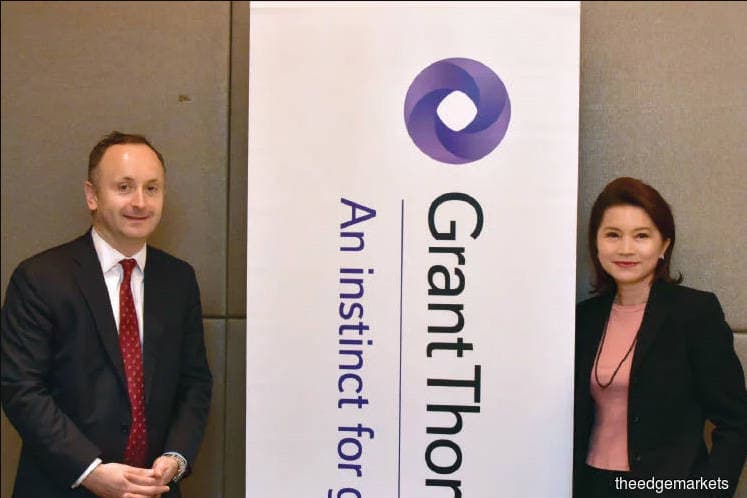
This article first appeared in The Edge Malaysia Weekly on June 17, 2019 - June 23, 2019
MANY may not be aware that Malaysia, along with 99 other tax jurisdictions, has committed to the automatic exchange of information (AEOI) on financial accounts maintained within its authority by tax residents of other participating jurisdictions.
This AEOI is done through the Organisation for Economic Co-operation and Development’s Common Reporting Standard (CRS) where the responsibility is seen falling on financial institutions to identify and document information on reportable individual and entity account holders. Reportable information will then be passed on to the tax authorities, which will exchange information with the relevant foreign tax authorities.
The purpose of the CRS is to combat tax evasion and ensure that taxpayers pay the right amount of taxes due to their governments.
Interestingly, the role of financial institutions in identifying and validating information has made them the de facto “tax collectors” for the government under the CRS, observes Grant Thornton UK financial services tax director Martin Killer. This has also come at a large cost to them.
“Having seen this across Europe, the biggest burden obviously falls on the financial institutions — banks, funds and some insurance companies, but particularly for the banks because of the number of customers they have that are potentially within the scope of the rules.
“The banks spend millions of pounds or euros implementing procedures just to be compliant with these rules. The biggest impact, from the financial institutions’ point of view, is the change they have to make to their onboarding processes,” he explains.
Killer points out that the CRS creates an additional level of information gathering centred on the tax residency of the financial institutions’ customers and validating the information received.
“The obligation falls on the institutions to collect the information. If they don’t collect or validate it appropriately, then there are potential penalties imposed on the institutions because, ultimately, if the first steps of data collection and validation are not done accurately, the reporting isn’t going to be correct either.”
Ironically, the amount of money spent by financial institutions on trying to comply with the CRS rules is said to have far outweighed any numbers in the tax gap put forward by governments around the world, Killer observes.
Last year, Malaysian financial institutions commenced their CRS obligations to the Inland Revenue Board (IRB).
According to Killer, Malaysian financial institutions should expect the tax authorities to announce plans to audit their CRS processes in the next year or so, given that it is already happening in European countries that were early adopters of CRS.
“The tax authorities in Europe and the UK have announced plans to audit. Using analysis, they want to test whether the results of the reporting are actually accurate. I would envisage that the tax authorities here will be thinking about doing those kinds of audits in the next year or so,” he opines, adding that the tax authorities in Europe and the UK are very focused on the number of undocumented accounts held by the banks.
“Under AEOI, banks and other financial institutions are required to disclose [a] customer as an ‘undocumented account’ when they have not managed to get a form from them. This not only triggers potential penalties on the bank for not collecting the form but also raises concern over how compliant the bank is [to the CRS rules],” explains Killer.
CRS focused on individual taxpayers
Grant Thornton Malaysia tax practice leader Seah Siew Yun says the focus of the CRS is on the tax avoidance of individual taxpayers.
For Malaysia, the commitment to exchange information via the CRS is timely. Not too long after signing on to be a participating jurisdiction in the global tax effort, the Ministry of Finance announced the special voluntary disclosure programme (SVDP) for companies and individuals who had not paid their taxes or the right amount of taxes.
“This programme does not only cater for those in Malaysia who keep their assets in Malaysia … it is especially for people with money offshore,” says Seah.
The SVDP, which started last November, has seen a slow start, she adds. It was only in February this year, after the Malaysian tax authorities started receiving information on tax residents from other participating jurisdictions under the CRS, that the disclosures started to pick up.
By end-March, it was reported that there were more than 300,000 taxpayers who had stepped forward to disclose additional taxes.
“We then saw many letters being issued by the IRB to taxpayers in February this year after it began receiving [information] from the other jurisdictions. Many people received letters saying that the IRB has information under the AEOI, and inviting them to come forward to explain their income source,” says Seah.
“However, the tax authorities will not tell you which country [they received the information from].”
If the taxpayer can justify that the income came from a foreign source, it would not be taxable, Seah points out. “So, everyone has to check their record-keeping, just in case they are called in to explain their income.”
According to her, the IRB also welcomes taxpayers who provide voluntary disclosures “just in case” they have some other items it may have missed out. “The beauty of this is, once you have done it, you will receive a clearance letter and that letter is confirmation that the IRB will not audit or investigate you anymore for those years of assessment where you have done your voluntary disclosures.”
Save by subscribing to us for your print and/or digital copy.
P/S: The Edge is also available on Apple's AppStore and Androids' Google Play.